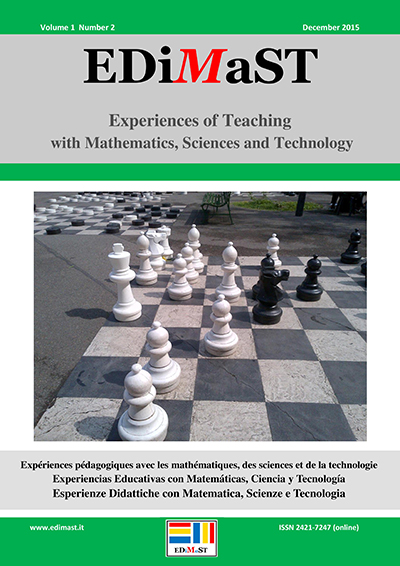Simulating Real Analysis-Honors Calculus in a sociocultural context
Keywords:
Vygotsky, sociocultural theory, Cesaro summability, Cauchy property,Abstract
The sociocultural theory of learning has a tremendous clout in every branch of science, especially in mathematics .We try to reveal how a real analysis class experiences the benefits of a teaching approach based on the aforementioned learning theory. Predominant concepts that motivated us to do so are the fundamental Cauchy property and the Cesaro summabilityReferences
Banks, J.A. And McGee-Banks, C.A. (2010). Multicultural Education: Issues and Perspectives. Wiley.
Cantoral, R. (2013). Teoría Socioepistemológica de la Matemática Educativa. Estudios sobre construcción social de conocimiento. Barcelona, España: Gedisa.
Davydov, V.V. (1975b). The psychological characteristics of the prenumerical period of mathematics instruction.
Soviet Studies in the Psychology of Learning and Teaching Mathematics, 7, 109-206.
Kozulin, A. (1990). Vygotsky’s Psychology: A biography of ideas. Cambridge, Massachusetts: Harvard University Press.
MacClurer, C.R. (2006). Honors Calculus. Princeton University Press
Radford, L. (2008). Theories in mathematics education. A Brief Inquiry into their Conceptual Differences. Working paper for the ICMI Survey Team 7.
Vygotsky, L. (1986). Thought and Language, rev. & ed. A. Kozulin, Cambridge, Mass: Massachusetts Institute of Technology Press.
Vygotsky, L. (1978). Mind in society: The development of higher psychological processes. Cambridge, MA: Harvard University Press.





